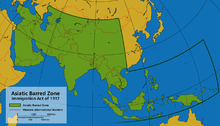This is your morning Open Thread. Pour your favorite beverage and review the past and comment on the future.
Find the past “On This Day in History” here.
February 9 is the 40th day of the year in the Gregorian calendar. There are 325 days remaining until the end of the year (326 in leap years).
On this day in 1950, Joseph Raymond McCarthy, a relatively obscure Republican senator from Wisconsin, accuses State Department of being infiltrated by communists. McCarthy announces during a speech in Wheeling, West Virginia, that he has in his hand a list of 205 communists who have infiltrated the U.S. State Department. The unsubstantiated declaration, which was little more than a publicity stunt, suddenly thrust Senator McCarthy into the national spotlight.
Asked to reveal the names on the list, the reckless and opportunistic senator named officials he determined guilty by association, such as Owen Lattimore, an expert on Chinese culture and affairs who had advised the State Department. McCarthy described Lattimore as the “top Russian spy” in America.
These and other equally shocking accusations prompted the Senate to form a special committee, headed by Senator Millard Tydings of Maryland, to investigate the matter. The committee found little to substantiate McCarthy’s charges, but McCarthy nevertheless touched a nerve in the American public, and during the next two years he made increasingly sensational charges, even attacking President Harry S. Truman’s respected former secretary of state, George C. Marshall.
McCarthy experienced a meteoric rise in national profile on February 9, 1950, when he gave a Lincoln Day speech to the Republican Women’s Club of Wheeling, West Virginia. His words in the speech are a matter of some debate, as no audio recording was saved. However, it is generally agreed that he produced a piece of paper that he claimed contained a list of known Communists working for the State Department. McCarthy is usually quoted to have said: “The State Department is infested with communists. I have here in my hand a list of 205-a list of names that were made known to the Secretary of State as being members of the Communist Party and who nevertheless are still working and shaping policy in the State Department.”
There is some dispute about whether or not McCarthy actually gave the number of people on the list as being “205” or “57”. In a later telegram to President Truman, and when entering the speech into the Congressional Record, he used the number 57. The origin of the number 205 can be traced: In later debates on the Senate floor, McCarthy referred to a 1946 letter that then-Secretary of State James Byrnes sent to Congressman Adolph J. Sabath. In that letter, Byrnes said State Department security investigations had resulted in “recommendation against permanent employment” for 284 persons, and that 79 of these had been removed from their jobs; this left 205 still on the State Department’s payroll. In fact, by the time of McCarthy’s speech only about 65 of the employees mentioned in the Byrnes letter were still with the State Department, and all of these had undergone further security checks.
At the time of McCarthy’s speech, communism was a growing concern in the United States. This concern was exacerbated by the actions of the Soviet Union in Eastern Europe, the fall of China to the communists, the Soviets’ development of the atomic bomb the year before, and by the contemporary controversy surrounding Alger Hiss and the confession of Soviet spy Klaus Fuchs. With this background and due to the sensational nature of McCarthy’s charge against the State Department, the Wheeling speech soon attracted a flood of press interest in McCarthy.

 On this day in 1828,
On this day in 1828, 
 On this day in 1795, The 11th Amendment to the United States Constitution is ratified. It dealt with each state’s sovereign immunity from being sued in federal court by someone of another state or country.
On this day in 1795, The 11th Amendment to the United States Constitution is ratified. It dealt with each state’s sovereign immunity from being sued in federal court by someone of another state or country. On this day in 1952,
On this day in 1952,  On this day in 1917, with more than a two-thirds majority, Congress overrides President Woodrow Wilson’s veto of the previous week and
On this day in 1917, with more than a two-thirds majority, Congress overrides President Woodrow Wilson’s veto of the previous week and  Welcome to the Stars Hollow Health and Fitness weekly diary. It will publish on Saturday afternoon and be open for discussion about health related issues including diet, exercise, health and health care issues, as well as, tips on what you can do when there is a medical emergency. Also an opportunity to share and exchange your favorite healthy recipes.
Welcome to the Stars Hollow Health and Fitness weekly diary. It will publish on Saturday afternoon and be open for discussion about health related issues including diet, exercise, health and health care issues, as well as, tips on what you can do when there is a medical emergency. Also an opportunity to share and exchange your favorite healthy recipes. 
Recent Comments